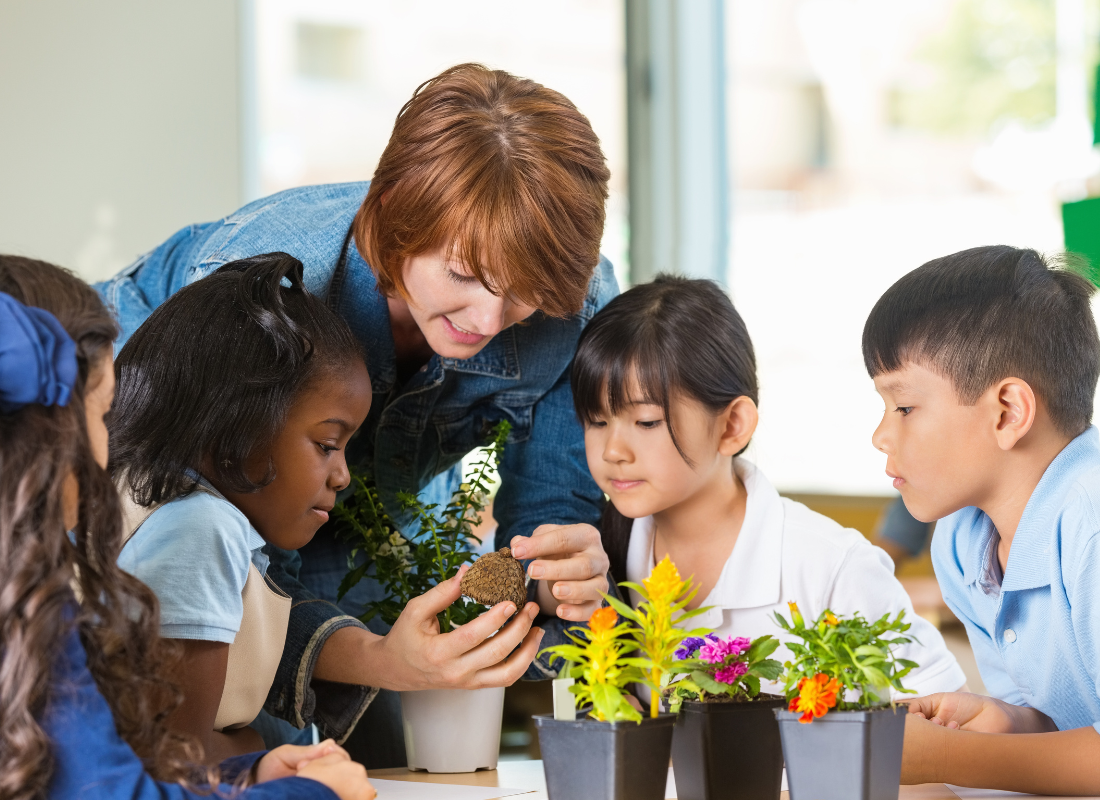
In the face of escalating climate change, the role of education in shaping environmentally conscious individuals has never been more critical.
Schools, as centers of knowledge and influence, play a pivotal role in cultivating the next generation of environmental stewards.
This article explores the various ways in which climate action is being integrated into school curricula and extracurricular activities, highlighting the transformative impact education can have on students and their commitment to sustainable practices.
-
The Urgency of Climate Education:

The urgency of climate change demands a proactive approach to education.
Schools are recognizing the need to equip students with the knowledge and skills necessary to address environmental challenges. Climate education goes beyond science classes; it encompasses a multidisciplinary approach that incorporates science, technology, engineering, and mathematics (STEM) subjects alongside social sciences and humanities.
By weaving climate-related topics into various subjects, educators can foster a holistic understanding of the interconnectedness of environmental issues.
This comprehensive approach helps students recognize the urgency of climate action and the role they can play in mitigating its impacts.
-
Innovative Teaching Methods:

To engage students effectively, educators are embracing innovative teaching methods that make climate change education both informative and enjoyable.
Interactive simulations, hands-on experiments, and project-based learning are becoming integral parts of the curriculum.
These methods not only enhance students’ understanding of environmental concepts but also instill a sense of responsibility and curiosity.
For example, schools are implementing climate change simulations that allow students to experience the consequences of different environmental scenarios.
This hands-on approach helps students visualize the impact of their actions on the planet, fostering a deeper connection to the environment.
-
Extracurricular Initiatives:

Beyond the classroom, schools are encouraging extracurricular activities that promote climate action.
Environmental clubs, sustainability projects, and community outreach programs provide students with opportunities to actively contribute to positive change.
These initiatives not only empower students but also create a sense of community and shared responsibility.
One notable example is the rise of school gardens and eco-friendly campuses.
Students involved in these projects learn about sustainable agriculture, waste reduction, and the importance of biodiversity.
These hands-on experiences not only contribute to a more environmentally conscious school environment but also serve as tangible models of sustainable living.
-
Collaborative Partnerships:

Schools are increasingly recognizing the value of collaborative partnerships with local environmental organizations, businesses, and government agencies.
These partnerships provide students with real-world exposure to environmental issues and solutions, bridging the gap between theoretical knowledge and practical application.
Through internships, field trips, and mentorship programs, students can witness the impact of climate action in their communities.
These experiences not only enhance their education but also inspire them to become active participants in local and global environmental initiatives.
-
Empowering Future Leaders:

Education is not just about imparting knowledge; it’s about fostering leadership skills that empower students to be catalysts for change.
Schools are incorporating leadership development programs that emphasize the importance of ethical decision-making, effective communication, and collaborative problem-solving in the context of environmental issues.
These programs encourage students to take initiative, speak out on environmental matters, and develop the skills needed to influence policy and public opinion.
By nurturing a generation of environmentally conscious leaders, schools are sowing the seeds for a sustainable future.
-
Global Perspectives:

Climate change is a global challenge that requires a collective response.
Schools are incorporating global perspectives into their curricula to help students understand the interconnected nature of environmental issues.
Virtual exchanges, international collaborations, and global environmental projects enable students to engage with peers from different parts of the world, fostering a sense of shared responsibility for the planet.
By exposing students to diverse perspectives and solutions, schools are preparing them to collaborate on a global scale.
This global awareness not only enhances their understanding of climate issues but also instills a sense of solidarity and a commitment to collective action.
-
Overcoming Challenges:

While progress is being made, integrating climate action into education faces challenges.
Limited resources, competing priorities, and resistance to change can hinder the implementation of comprehensive climate education programs. However, schools and educators are finding creative solutions to overcome these obstacles.
Advocacy and awareness campaigns within school communities are crucial in garnering support for climate education initiatives.
Engaging parents, teachers, and policymakers in conversations about the importance of environmental education helps build a collective commitment to sustainable practices.
Conclusion:

As the climate crisis intensifies, the role of education in shaping environmentally conscious individuals has never been more crucial.
Schools are emerging as key players in cultivating the next generation of environmental stewards.
Through innovative teaching methods, extracurricular initiatives, collaborative partnerships, leadership development, global perspectives, and overcoming challenges, education is becoming a powerful force for positive change.
By instilling a sense of responsibility, fostering leadership skills, and promoting a global perspective, schools are equipping students to be active participants in the fight against climate change.
The impact of climate action in schools extends beyond the classroom, creating a ripple effect that influences communities, societies, and ultimately, the future of our planet.
It is through education that we can hope to build a generation of individuals committed to creating a sustainable and resilient world for generations to come.




